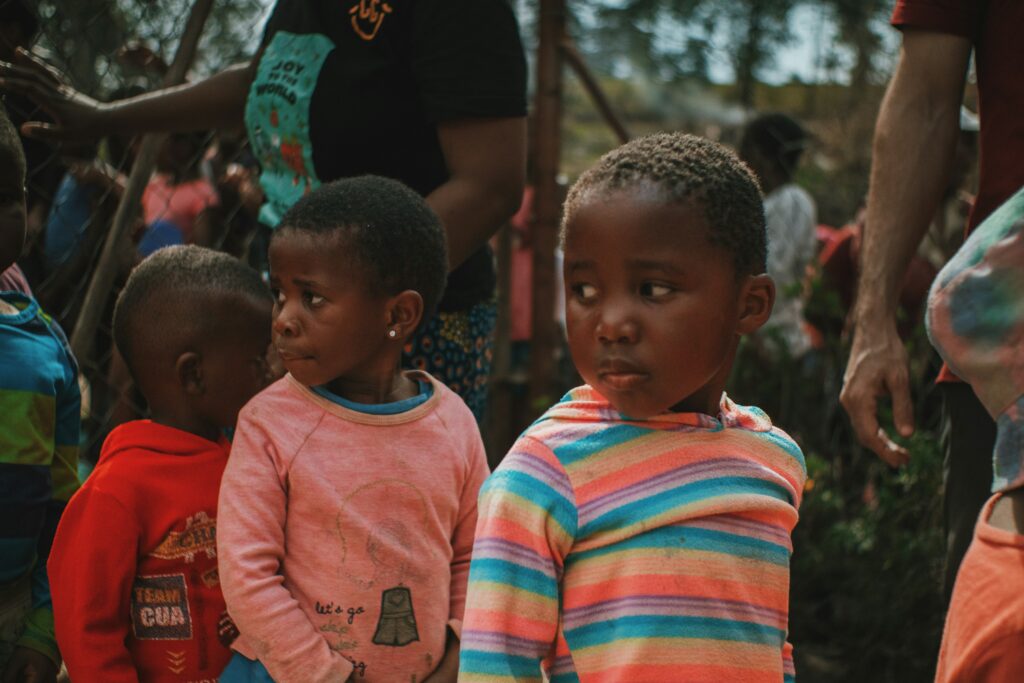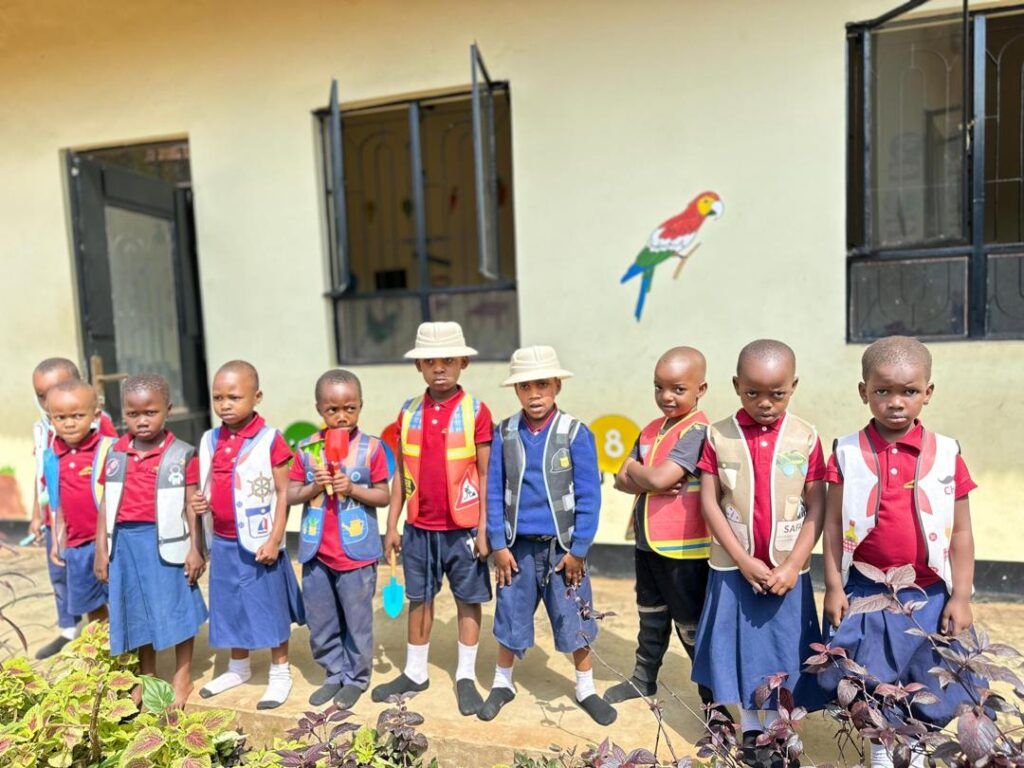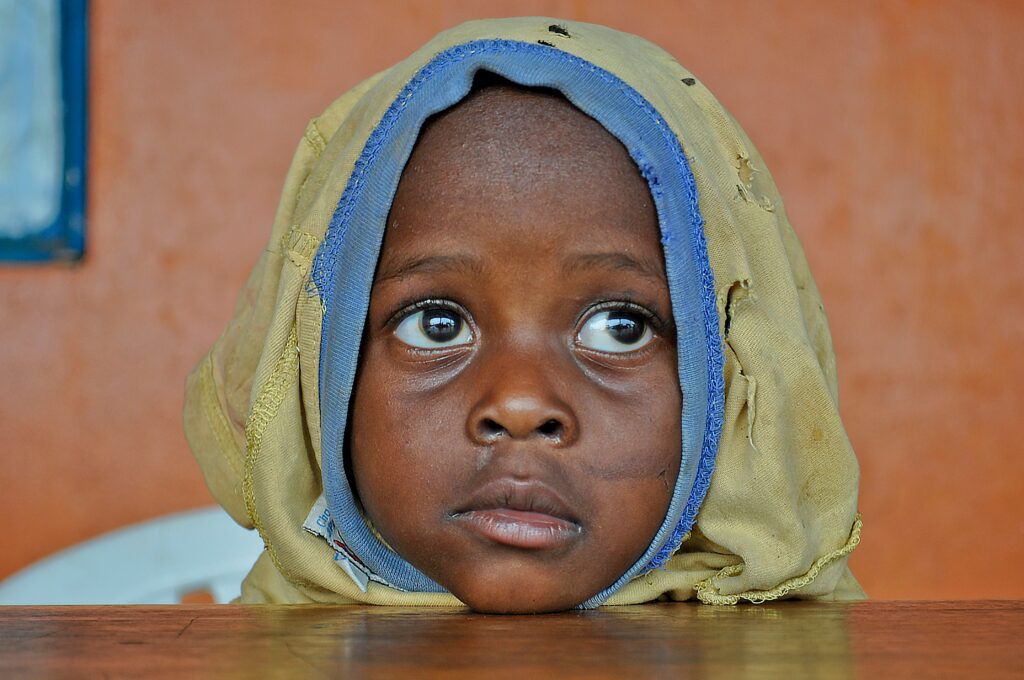In a world where millions of children face daily struggles, sponsoring a child in Tanzania offers a powerful way to create lasting change. With over 2.5 million orphans and vulnerable children in Tanzania grappling with poverty, lack of education, and health issues, programs like those at Moshi Kids Centre provide essential support. Tanzania child sponsorship not only addresses immediate needs but also fosters long-term development, empowering young lives to break the cycle of hardship. As part of broader efforts to donate to children in Africa, child sponsorship connects compassionate individuals with those in need, turning donations into transformative opportunities.
At Moshi Kids Centre, we believe every child deserves a chance to thrive. Our mission aligns with partners like Zara Charity, founded by Zainab Ansell, who has pioneered sustainable initiatives in Tanzania. Through her leadership, Zara Charity supports projects like the Moshi Kids Center project, extending help to underprivileged children. If you’re considering how to donate to children in Africa, sponsoring a child in Tanzania is a direct, impactful approach. This article explores the profound benefits of sponsorship, drawing from real-world examples and statistics, while guiding you on how to get involved. For more on the broader challenges, check out our related blog: Challenges Facing Orphans and Vulnerable Children in Tanzania—and How We Can Help.
Whether you’re new to Tanzania child sponsorship or seeking ways to expand your support, understanding its ripple effects can inspire action. Let’s dive into how this simple act transforms lives, communities, and futures.

Understanding Child Sponsorship: A Lifeline for Vulnerable Children
Child sponsorship is more than a donation—it’s a personal commitment to a child’s growth. In Tanzania, where approximately 1.3 million children are orphans due to factors like HIV/AIDS and poverty, sponsorship programs fill critical gaps. Sponsors typically contribute a monthly amount, which funds education, nutrition, healthcare, and emotional support for a specific child. This model, popularized by organizations across Africa, ensures accountability and direct impact.
In Tanzania, vulnerable children—often defined as those in poor housing or without adequate care—face heightened risks. Nearly 45% of rural children live in substandard conditions, exacerbating issues like malnutrition and school dropout. Sponsoring a child in Tanzania addresses these by providing tailored aid. For instance, at Moshi Kids Centre, sponsors help cover school fees, uniforms, and meals for children in the Kilimanjaro region.
The benefits extend beyond the individual. As noted in various studies, child sponsorship in Africa improves overall community wellbeing by reducing poverty and promoting education. It’s a holistic approach that blends physical, social, economic, and even spiritual care, helping children mature fully. When you donate to children in Africa through sponsorship, you’re investing in sustainable change. Programs like those from Village Africa, which operates in Tanzania, highlight how sponsorship alleviates poverty by supporting primary and secondary education.
Moshi Kids Centre, in partnership with Zara Charity, emphasizes this personalized model. Our projects page details how sponsorship integrates with broader initiatives, such as recreational spaces and helplines for families in need. By linking sponsors with children, we create meaningful connections that inspire hope.


The Challenges Children Face in Tanzania—and How Sponsorship Helps
Tanzania’s children confront daunting obstacles. Recent data shows about one million orphans under 18, with breakdowns including 346,733 aged 0-5, 378,253 aged 6-12, and 289,380 aged 13-17. These figures underscore the urgency, as many live without basic necessities. Poverty forces children into labor, with high rates of violent discipline and maltreatment reported in care institutions.
Education remains elusive for many. Orphans are at risk of dropout due to financial barriers, yet sponsorship changes this narrative. By funding school essentials, sponsors ensure consistent attendance, leading to better academic outcomes. In Tanzania, where government and civil society mechanisms provide some support, individual sponsorship amplifies these efforts.
Health is another critical area. Malnutrition and diseases like HIV affect thousands, but sponsorship programs offer access to medical care and nutritious meals. Emotional wellbeing benefits too, as sponsored children receive counseling to cope with loss and trauma.
Community-based interventions, like those from Pact in Tanzania, have supported millions by addressing HIV-related vulnerabilities. Sponsoring a child in Tanzania builds on this, fostering resilience and leadership. As one benefit, it empowers young people to gain employment and support their families, breaking poverty cycles.
At Moshi Kids Centre, we’ve seen sponsorship transform over 800 children by providing safe learning environments. Our about us page shares more on our commitment to nurturing talents.
Key Benefits of Sponsoring a Child in Tanzania
Sponsoring a child yields multifaceted benefits, as evidenced by programs across Africa. Here are ten key advantages, adapted from expert insights:
- Access to Education: Sponsors cover fees and supplies, enabling consistent schooling and higher literacy rates.
- Improved Health and Nutrition: Regular meals and check-ups reduce malnutrition and illness.
- Emotional Support: Children gain a sense of belonging through letters and encouragement from sponsors.
- Community Development: Funds often support local infrastructure, like wells or schools, benefiting entire villages.
- Economic Empowerment: Educated children grow into productive adults, boosting family and national economies.
- Reduced Poverty: Sponsorship addresses basic needs, preventing child labor and exploitation.
- Spiritual and Social Growth: Holistic programs nurture values and social skills.
- Long-Term Impact: Sponsored children often become community leaders, perpetuating positive change.
- Personal Fulfillment for Sponsors: Building a relationship provides joy and purpose.
- Sustainable Change: Unlike one-time aid, sponsorship fosters independence.
These benefits are evident in Tanzania, where sponsorship through organizations like Unbound improves nutrition and school attendance.

Real Stories: Transformations Through Sponsorship
Consider Aisha, a young girl from Moshi who lost her parents to illness. Through sponsorship, she received education and counseling, excelling in school and aspiring to become a teacher. Stories like hers abound in our success stories page, showcasing how Tanzania child sponsorship ignites potential.
Another example: In collaboration with Zara Charity, sponsored children participate in empowerment programs, gaining skills for self-reliance. Zainab Ansell’s vision ensures these initiatives are sustainable, linking tourism revenue to child support.
Volunteering complements sponsorship; sites like Volunteer Tanzania offer opportunities to engage directly, often in partnership with groups like Zara Charity.
How to Get Involved: Sponsor a Child Today
Ready to donate to children in Africa? Start by visiting our donate page to sponsor a child in Tanzania. Monthly contributions start small but yield big results. You can also volunteer to teach or mentor.
For broader impact, support Zara Charity’s efforts, which include healthcare and education projects. Contact us via our contact page for personalized guidance.
Be the Change for Tanzania's Children
Sponsoring a child in Tanzania is a gateway to profound transformation, offering hope amid challenges. By partnering with Moshi Kids Centre and allies like Zara Charity under Zainab Ansell’s guidance, your support creates brighter futures. Don’t wait—join us today and witness how your generosity changes lives.

